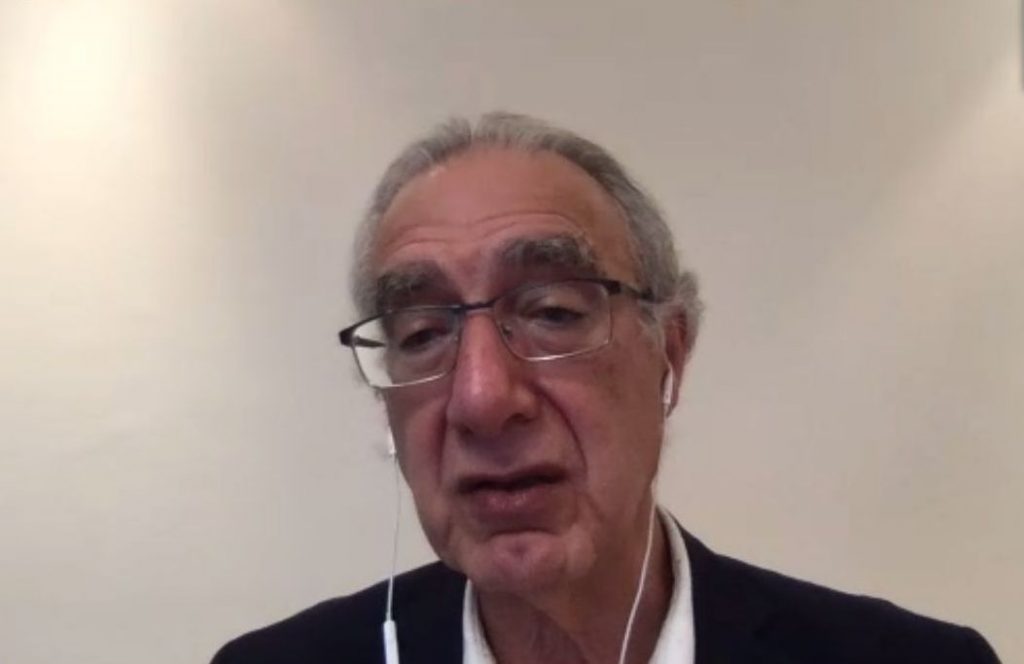São Paulo – Exploring the vast market of Muslim consumers entails a consideration of its characteristics, which include stronger brand loyalty and a sense of collectiveness. The peculiarities of Muslim shopping behavior were in discussion this Thursday (20) by Arab Brazilian Chamber of Commerce (ABCC) president Rubens Hannun in a class taught within the online course “The Islamic World: Opportunities and challenges for Brazilian agriculture.”
The course is offered by the Federation of Muslim Associations in Brazil (Fambras) and the Brazilian Agriculture and Livestock Confederation (CNA), with support from the ABCC and the Halal Academy in Brazil. Classes and modules are taking place on four days this August. This week, besides Hannnun, lecturers included ambassador and Brazilian Ministry of Agriculture, Livestock and Supply secretary for Trade and International Relations Orlando Leite Ribeiro..

Hannun presented data according to which Muslims are primarily loyal to traditional companies and brands. “Which is good for us, because they are loyal to Brazil,” he said in reference to the fact that Brazil is one of the leading suppliers of halal goods to Muslim countries. According to Hannun, Brazil is the third-best rated country in the Global Islamic Economy Indicator (GIEI) of the Dubai Islamic Economy Development Centre.
According to Hannun, Muslims take longer to grow ties to new brands and businesses, and they will usually go for those they deem reliable and solid. They are not too open to testing or to new and unknown things. A brand that does not respect local cultural values will not be accepted. There is also a heightened sense of collectiveness. “If I bought something that isn’t good, I am obliget to let others know. I play a part in others’ wellbeing,” said Hannun.
Brazil is an established supplier among Muslim shoppers. The GIEI ranking, which looks at countries’ strong suits when it comes to supporting the development of Islamic economy, takes into account questions such as availability, halal governance, halal awareness, and social indicators. “Brazil is very well ranked in terms of production volume,” said Hannun. The list is topped by the UAE, followed by Malaysia.
The Islamic population grows much faster than the general population and boasts a fairly young profile. Hannun discussed the results of a survey from ASDA’A Burson Marsteller about the preferences, attitudes and concerns shared by young Arabs. Religion plays a key role in their lives, and they find that religious institutions need reforms. They are also concerned with economic crises, are prone to supporting government, displeased with local education, and wiling to pursue a higher education away from their country of origin.
Market

Ribeiro, of the Ministry of Agriculture, went over the importance of the Islamic market to Brazilian agribusiness. “We exported USD 9.5 billion to those countries up until July, even amid the pandemic,” he said. He showed data according to which the Organization for Islamic Cooperation (OIC) countries took in 18% of agribusiness exports from Brazil through July. Turkey was the single biggest importer, followed by Indonesia, Bangladesh, Saudi Arabia, Egypt, Algeria, Pakistan, UAE, Iran and Malaysia. The best-selling items were sugar, soy and poultry.
Ribeiro said Brazil’s agribusiness made its way into 87 new markets during the current administration. He underscored the work of Agriculture minister Tereza Cristina, for whom finding new markets entails opening Brazil’s up to other countries as well. The secretary mentioned that Islamic and Arab countries giving the green light to Brazilian product over the past few months include Kuwait, for beef, Morocco, for poultry genetics, Qatar, for cattle embryos and semen, and Egypt, for poultry-based products.

Ribeiro also discussed the investment potential of Arab funds in agribusiness and infrastructure, markets’ concerns regarding sustainability, and the post-pandemic scenario. The ambassador believes protectionism will increase, and he expressed concern regarding barriers to Brazilian-made goods.
The open lesson was hosted by Fambras vice president Ali Hussein El Zoghbi and by CNA Commercial Intelligence coordinator Sueme Mori. A lesson on Thursday, August 25 will delve into Islamic banking and sovereign funds, featuring lectures from the First Abu Dhabi Bank’s Latin America manager Ângela Martins and Brazilian Ministry of Economy special joint secretary on Foreign Trade and International Affairs Yana Dumaresq Sobral Alves.
Translated by Gabriel Pomerancblum




